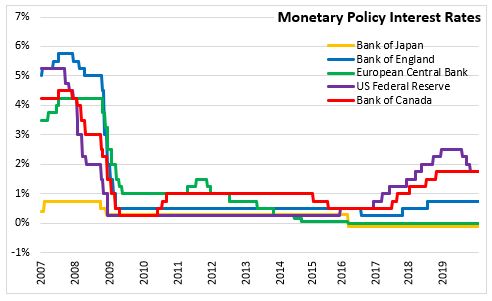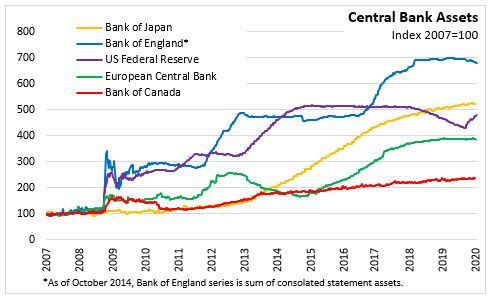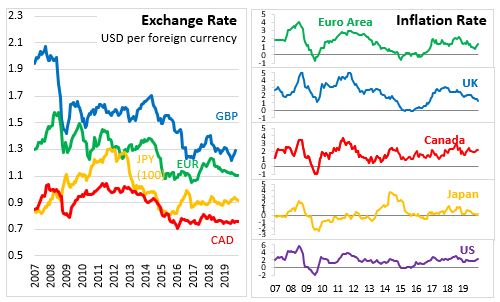The Economics and Statistics Division maintains archives of previous publications for accountability purposes, but makes no updates to keep these documents current with the latest data revisions from Statistics Canada. As a result, information in older documents may not be accurate. Please exercise caution when referring to older documents. For the latest information and historical data, please contact the individual listed to the right.
<--- Return to Archive
For additional information relating to this article, please contact:
January 23, 2020MONETARY POLICY: EURO AREA At today’s meeting, the Governing Council of the European Central Bank (ECB) announced that policy interest rates are unchanged with the deposit facility, main refinancing operations and the marginal lending facility rates remaining at -0.50%, 0.00% and 0.25%, respectively. Rates are expected to remain at their present levels or lower until ECB’s inflation outlook converges sufficiently close to 2 per cent.
Net purchases were restarted on the first of November under the Asset Purchase Programme (APP) at a monthly pace of €20 billion. Under the APP, private and public sector securities are purchased to address the risks of prolonged periods of low inflation over the medium term. Net purchases are expected to run for as long as necessary to reinforce the impact of policy rates, and to end shortly before the ECB raises key interest rates. Reinvestment of the principal payments from maturing securities will continue alongside future rate increases, to maintain favourable liquidity conditions and continued monetary support.
Recent data is in line with expectations that euro area will continue to grow at moderate rate. Weakness in the manufacturing sector remains a drag, but employment and wage growth are sources of resilience. Ongoing weakness in international trade and global uncertainty has been affecting the manufacturing sector and dampening investment. Going forward, euro area growth is supported by favourable financing conditions, labour market, and slightly fiscal expansion.
Euro area inflation rose from 1.0 per cent in November to 1.3 per cent in December, mainly reflecting higher energy prices. Indicators of inflation expectations remain at low levels but have stabilized or ticked up. Supporting inflation pressures has been higher labour costs amid tightening labour markets but pass-through effects are slow to materialize given the slow growth momentum in the economy.



Sources: European Central Bank
<--- Return to Archive